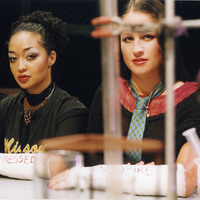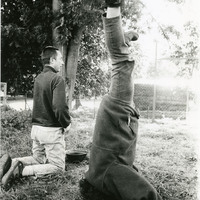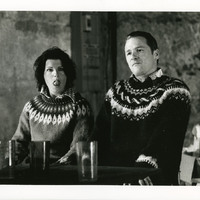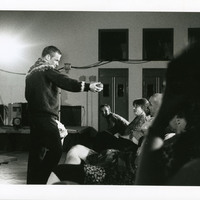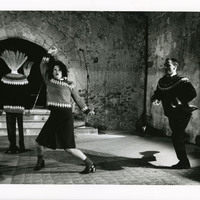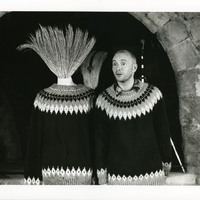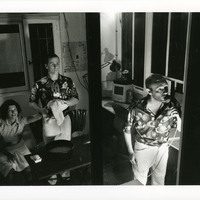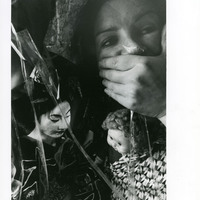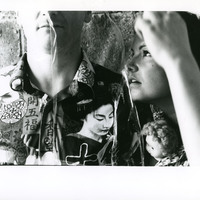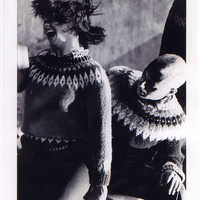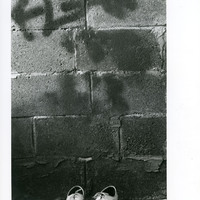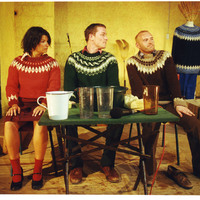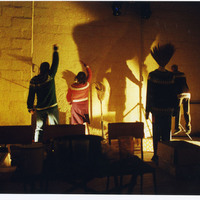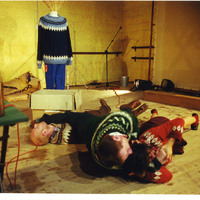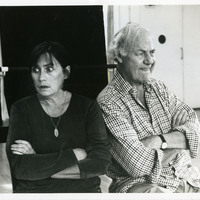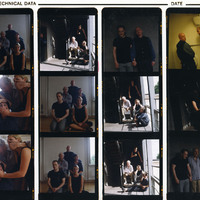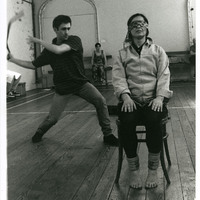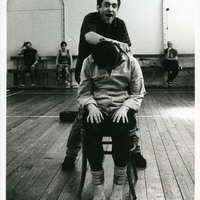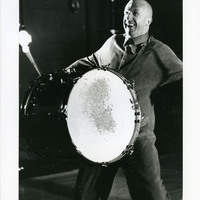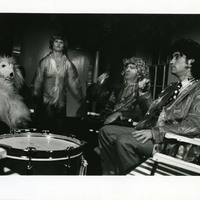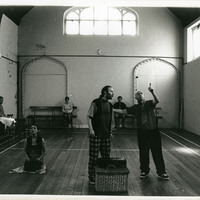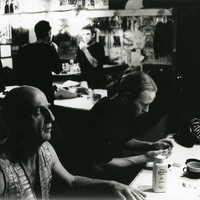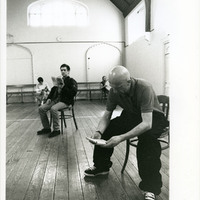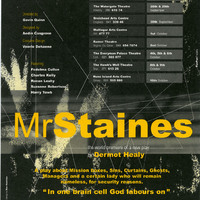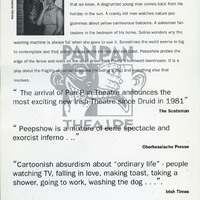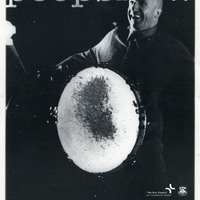‘Caverns of the Mind’ – Pan Pan and Developing New Work
With works being directed by Gavin Quinn and designed by Aedín Cosgrove, a distinctive new and innovative performance style became evident as Pan Pan produced new original works. The company, intent on continuous self-reinvention, keeps Pan Pan at the leading edge of theatrical innovation. The company was active at the internationalisation of Irish arts, theatre, and culture in the mid to late 1990s, bringing a new form of Irish drama to international audiences.
Mr. Staines (1999),a new play, was written by novelist and playwright Dermot Healy. Most of the Pan Pan original works of this period were written by a company member – most frequently, Gavin Quinn, but the involvement of Healy marks one of the first times the company included an external playwright. Others like Simon Doyle would follow in later years. At the turn of the millennium, Pan Pan produced Standoffish (2000). It won an award at the Adelaide Fringe Festival in Australia, and went on to tour through a myriad of other countries, amongst which, of course, Ireland. The show was also a part of Les Voyages des Comédians, a traveling theatre spectacle in France which involved a sort of caravan traveling from small village to small village in the French countryside.
In 2001, Deflowerfucked, with its standout name and colourful poster picturing the female actor covered in bright blue paint, was a part of the 2001 Dublin Fringe Festival. Two years later, the company premiered For the First Time Ever (2003). This show also played at the Dublin International Theatre Symposium hosted by the company. Amy the Vampire and her Sister Martina (2005) was a collaboration with Corcadorca Theatre Company from Cork (a company that Cosgrave in particular worked closely with). This production also marked the first time Pan Pan would work with actor Ruth Negga, who was also cast in the later production of Oedipus Loves You, which premiered in the same year. Negga also participated in One (2005). Amy the Vampire and her Sister Martina explores themes surrounding mental health, and how people diagnosed with a mental illness find their own coping strategies, an important is neglected topic at the time in Irish society and art in general.
The Pan Pan productions of these years, with their varying themes, approaches and contents, provide an overview of the expanse of Pan Pan’s creativity and ability to reinvent their own stage practice, work with a range of collaborators and visit audiences around the world. The company lays great emphasis on expanding beyond their own creative boundaries, working with other playwrights, companies and festivals. Consequently, Pan Pan’s influence reaches far beyond their own community and beyond the Irish border. Pan Pan’s history of original works promises a future full of unique and innovative productions that continues to this day.




